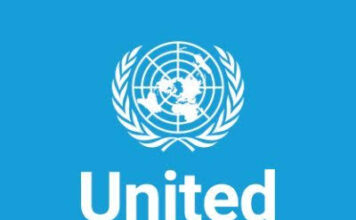The Secretary-General of the United Nations, Mr. António Guterres, has called upon nations to take decisive actions in safeguarding the crucial ecosystems of our planet from the increasing pollution, escalating impacts of climate change, and the alarming loss of biodiversity.
On the occasion of World Environment Day, Mr. Guterres stressed the pressing need for countries to honor their commitments in restoring damaged ecosystems and landscapes, as outlined in the international agreement aimed at biodiversity conservation, namely the Kunming-Montreal Biodiversity Framework.
The United Nations has been observing World Environment Day annually since 1973, and over the years, it has evolved to become the largest global platform for raising awareness and fostering engagement on environmental issues worldwide.
This year’s theme is “land restoration, desertification and drought resilience.”
UN Secretary-General Guterres urged countries to utilize their national climate action plans to halt and reverse deforestation by 2030, and to substantially increase financial support to developing nations to enhance their resilience to extreme weather events, conserve natural resources, and promote sustainable development.
The UN chief stated, “Every dollar invested in ecosystem restoration creates up to thirty dollars in economic benefits.”
He pointed out that the consequences of neglecting to address pollution, climate change, and biodiversity loss are clear, as once-thriving lands are becoming barren deserts, vibrant ecosystems are deteriorating into lifeless zones, and carbon dioxide emissions continue to rise, leading to devastating environmental degradation.
“That means crops failing, water sources vanishing, economies weakened, and communities endangered – with the poorest hit hardest … It is time to break free.
“We are Generation Restoration. Together, let us build a sustainable future for land, and for humanity,” he noted.
Inger Andersen, Executive Director of the UN Environment Programme, urged individuals worldwide to join a global movement that translates environmental commitments into concrete actions, promoting collective responsibility and tangible change.
“By restoring ecosystems, we can slow the triple planetary crisis: the crisis of climate change, the crisis of nature and biodiversity loss, including desertification, and the crisis of pollution and waste.
“In addition, by doing so, the world can get closer to limiting global temperature rise in line with the 2015 Paris Agreement by increasing carbon storage and reducing poverty and hunger, in line with the Sustainable Development Goals.
“Land restoration can be a golden thread that ties these together, ties together action and ambition across all these three important gatherings,” Andersen mentioned.
To mark World Environment Day 2024, the UN’s regional development arm and UNEP will convene key stakeholders in Asia and the Pacific to discuss pressing environmental issues, such as sustainable water management, eco-friendly food production, and resilient urban planning.
Later, Secretary-General Guterres will deliver a keynote address on climate change at the American Museum of Natural History, presenting new data from the World Meteorological Organisation and the Copernicus Climate Change Service, alongside Michael Bloomberg, Special Envoy on Climate Ambition and Solutions, and Sean Decatur, President of the Museum.
